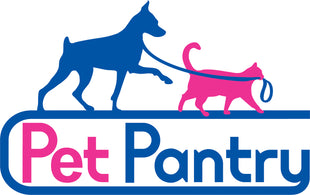Vitamin supplementation is used in kibble and wet pet foods to ensure it contains all the nutrients required to sustain life. Without vitamin supplementation, a food may not meet the nutrient requirements of a pet.
Why are vitamins in pet food important?
Vitamins are essential nutrients that perform numerous different roles in the body. They are involved in everything from assisting with energy metabolism to fighting disease to supporting the production of red blood cells.
Your pet would not have healthy skin and a shiny coat without adequate intake of essential vitamins!
When formulating a recipe, it is important to ensure the food contains adequate amounts of vitamins, and also that they are not supplied in excess. There are two categories of vitamins: fat-soluble and water-soluble. The fat-soluble vitamins include vitamins A, D, E, and K. These are absorbed along with fats in the diet and can be stored in the body’s fatty tissues. Therefore, it is important not to oversupply fat soluble vitamins as levels can build up in the body tissues and lead to toxicity. The water-soluble vitamins include the B vitamins and vitamin C. These are not stored in the body and whatever is not used by the pet is excreted.
How are vitamins incorporated into pet food?
Vitamin supplements are usually added to pet food using a “premix”. Vitamin premixes are a mixture of all essential vitamins. Using a premix allows the vitamins to be mixed twice – once when the premix is made and again when the premix is added the food. Using small quantities of a premix helps to ensure vitamins are distributed evenly throughout the food, which helps ensure nutritional adequacy and safety of the recipes.
While the goal is to use nutrient-rich ingredients to minimize the need for supplementation, nutrition and food science tells that optimal nutrition cannot always be achieved by natural food sources alone, making supplementation of pet food necessary.
What purpose does each vitamin serve in my pet’s food?
Here is a list of the essential vitamins and their functions:
Fat-Soluble Vitamins
-
Vitamin A (vitamin A supplement, beta-carotene): essential for skin, coat, muscle, and nerve function. Beta-carotene is an antioxidant that plays an important role in vision and immunity. Dogs can convert beta-carotene to vitamin A, whereas cats cannot.
-
Vitamin D (vitamin D3 supplement): plays a vital role in bone health as it is essential for the metabolism of calcium and phosphorus. Unlike humans, pets are unable to produce sufficient vitamin D with sunlight exposure.
-
Vitamin E (vitamin E supplement): provides antioxidant and immune system support. Vitamin E works synergistically with selenium.
-
Vitamin K: found in leafy green vegetables, vitamin K plays an essential role in blood clotting.
Water-Soluble Vitamins
-
Thiamine (thiamin mononitrate): also known as vitamin B1, thiamine is essential for the brain and other organs.
-
Riboflavin: also known as vitamin B2, riboflavin is essential for the metabolism of carbohydrates, fats, and protein to produce energy.
-
Niacin: also known as vitamin B3, niacin is involved in producing energy from carbohydrate, protein, and fat metabolism.
-
Pantothenic acid (d-calcium pantothenate): also known as vitamin B5, pantothenic acid is essential for making blood cells, and helps convert carbohydrates, fats, and proteins into energy.
-
Pyridoxine (pyridoxine hydrochloride): also known as vitamin B6, pyridoxine helps maintain the health of nerves, skin, and red blood cells. It also plays an important role in regulating blood glucose.
-
Biotin: also known as vitamin B7, biotin is essential for carbohydrate, fat, and protein metabolism. It also plays a role in supporting healthy skin, coat, and nails.
-
Folate (folic acid): also known as vitamin B9, folate plays a critical role in the production of new cells and DNA synthesis. It is also involved in the immune system and production of red and white blood cells.
-
Cobalamin (vitamin B12 supplement): also known as vitamin B12, cobalamin is essential for a healthy nervous system, brain function, formation and growth of blood cells, and intestinal health.
-
Vitamin C (L-ascorbyl-2-polyphosphate): necessary for the growth, development and repair of body tissues. It is also involved in the formation of collagen and acts as an antioxidant in the body.
-
Choline (choline chloride): choline is not a true vitamin, but is an essential nutrient involved in functions that overlap with other B vitamins. Choline plays a role in fat metabolism and is also essential for building and maintaining cell structure and healthy skin.
________________________________________________________________
AUTHOR


